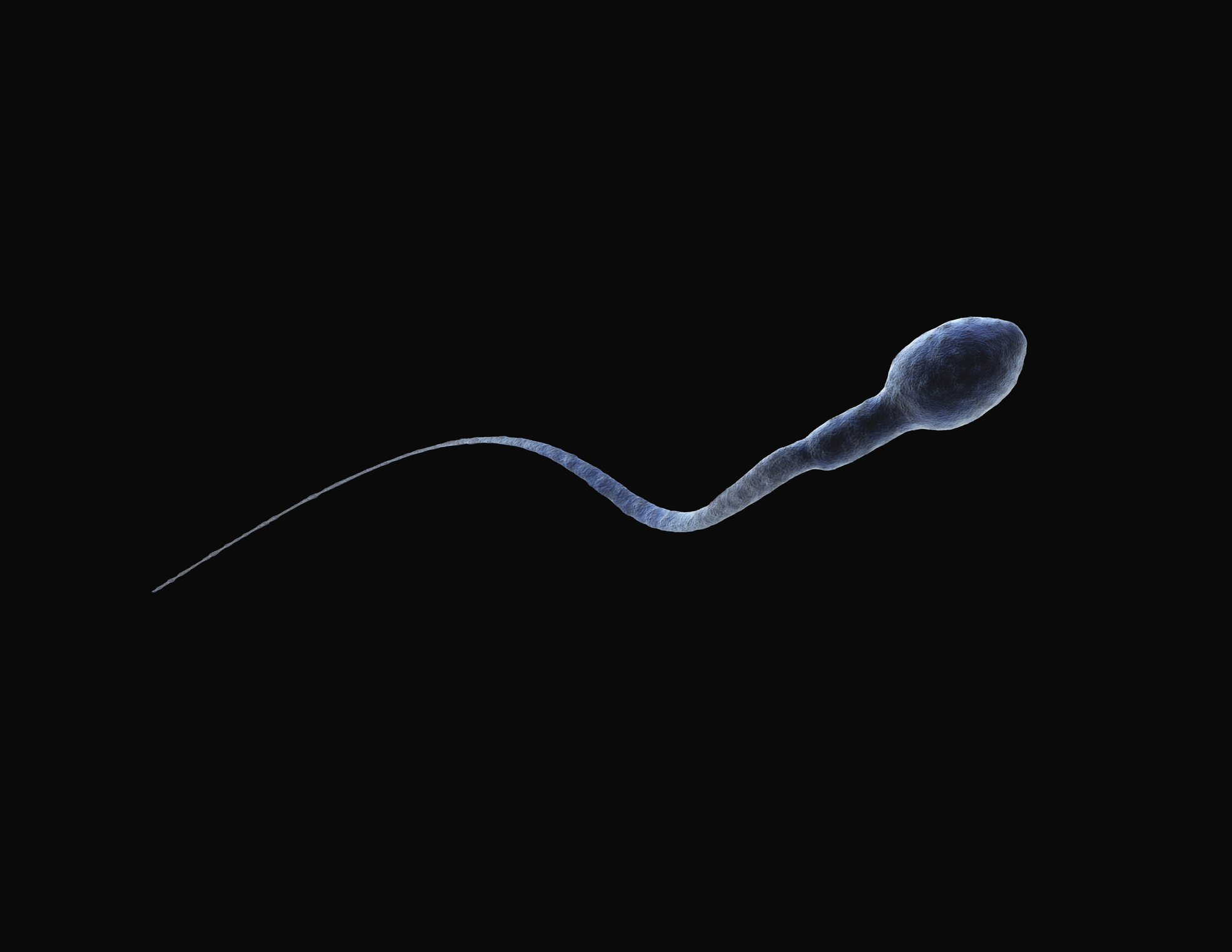Senator Josh Hawley has struck a powerful rhetorical blow against woke communism.
Ecce Homos

Tucker Carlson's new documentary terrifies the Left.
Tucker Carlson’s new documentary, The End of Men, which is due to be released this month, raised many plucked eyebrows when its trailer was released in April. The movie details the decline of masculinity around the globe, including the collapse in fertility and testosterone levels, and examines potential solutions to the problem, some of them unconventional. As one of the “stars” of the movie—I am the mysterious man “with a British accent” noted by Newsweek in its discussion of the trailer—I have been following the media response closely.
The preview prominently featured “testicle tanning,” which caused the liberal Twitterverse’s collective head to explode. According to the cognoscenti, Carlson, his interlocutors, and his producers were painfully oblivious to the implications of their material. “I thought I was straight until I watched this. Thank you, Tucker Carlson, thank you,” snarked a typical response. Cenk Uygur, bestiality advocate and presenter of the Young Turks, wondered whether there was “some chance Tucker is trolling his own audience because there’s gay porn less gay than this.” Others, however, were less equivocal. “I am sitting here next to my gay husband living my gay life reading a gay novel as research for my new gay book,” commented New York writer and gay man Mark Harris, “and yet I am not and will never be as gay as whatever is haunting Tucker Carlson’s gay fantasies.” Star Trek veteran and famous gay man George Takei, proving once again that brevity is indeed the soul of wit, simply tweeted, “This is so gay.”
Before the end of the day, the first hit piece was up, and they continued thick and fast throughout the rest of the week – and beyond. “Tucker Carlson exposes his insecurities in ‘The End of Men’ Trailer” (Forbes). “Tucker Carlson’s documentary trailer is a bizarre, homoerotic fever dream nobody asked for” (Pink News). “Can Tucker Carlson’s bizarrely beefy ‘End of Men’ teaser be real?” (Los Angeles Magazine). Disbelief apparently ran so high that Snopes.com thought it necessary to publish a fact-checking piece: yes, Tucker Carlson really did produce an “unusual trailer” for his new documentary.
Enter next, the talking heads. “A refreshing display of homoeroticism,” quipped Stephen Colbert on the Late Show, also adding that he felt it is a little strange that Tucker is into the idea of testicle tanning since “the last time I checked, he is the whitest dick ever.” Hilarious! Similar commentary, of the incisive quality we have come to expect from television’s highest-paid stars, was also offered by Seth Meyers, among others.
The focus on the supposedly homoerotic aspects of the trailer came at the expense of the very serious message of the documentary. The trailer focuses on a simple set of premises with huge implications. Sperm counts and testosterone levels have been plummeting in the West for decades, portending a reproductive and moral collapse with which we have yet to reckon. I wrote about this crisis of masculinity for The American Mind at about the same time as I was being interviewed for the Tucker documentary. The crisis is very real and a challenge that we must take seriously if we truly care about the future of our civilization.
Certainly, the trailer’s producers were looking to ruffle a few feathers for the sake of publicity. They wanted the second half of the preview—which begins with a real-life Vitruvian man shining red light on his testicles atop a boulder, to the triumphant strains of Thus Spake Zarathustra, before cutting to scenes of men wrestling, chopping wood, flipping tires, shooting bottles of vegetable oil with a .50 calibre rifle, and, of course, slonking raw eggs—to contrast as strongly as possible with the sombre, foreboding first half, in which John F. Kennedy laments the softening of young Americans’ bodies and wills, followed by his nephew, Robert Kennedy, Jr., talking about the precipitous decline of testosterone levels. Well, the producers got what they wanted.
Calling anything gay that looks like traditional masculinity is not new. Elsewhere, in a nod to the great Herbert Butterfield and his “whig interpretation of history,” I have called this tendency, in its broadest form, the “fag interpretation of history.” Basically, where the arc of Butterfield’s whig interpretation tends towards progress, the fag interpretation sees everywhere, and in all things, as a movement out of the closet and towards open faggotry. No male historical figure or event involving men or manly grouping is safe from queering, whether we’re talking about Julius Caesar or Alexander the Great, the Spartan last stand at Thermopylae, cowboys, pirates, gang members, or even the simplest masculine pleasures and pastimes. Someone, somewhere, whether they are a tenured academic or an armchair psychologist, will always be ready to tell you that the Spartans fought to the last man because they were all gay lovers; that great historical figure X was driven to make his vast conquests by a repressed desire for a male schoolfriend; or that Brazilian jiu-jitsu is just barely disguised dry humping. Checkmate, bigots!
There are plenty of variations on this tendency. A familiar one should be the “small penis” theory of history—a dinner-party favorite—in which the principal motivation for power-seeking is, you guessed it, having a small penis. Napoleon and Hitler have been endless subjects of penile speculation. In more recent years, after the Stormy Daniels affair, Donald Trump has also been the subject of such speculation, whose “tiny hands” became a source of great hilarity. Putin, too, it’s claimed, has a tiny penis. These theories are more or less infinitely malleable and endlessly self-confirming. Men, who like guns? Small penises. Men, who drive 4x4s? Small penises. And so it goes, on and on. Body shaming is a terrible thing to do—unless someone’s beliefs or interests run contrary to liberal propaganda, in which case making fun of their putatively undersized genitals is in fine taste.
Where did this way of thinking originate? It feels a little too easy to blame Freud, however much the Viennese Witch Doctor may have done to put sexuality front and center in Western life and thinking. It is clear, though, that there exists in modern thought a powerful reductionist impulse that is always looking to find a single principle that will explain everything. For Marx and Marxists, we have the economic principle; for gender theorists, the patriarchy; for the Dawkins crew, biology.
But this kind of thinking is part of a much larger process that has destroyed traditional forms of masculinity, robbing them of their naturalness and making men second-guess their own feelings. C.S. Lewis commented on this malign tendency when he noted, “Those who cannot conceive of Friendship as a substantive love but only as a disguise or elaboration of Eros betray the fact that they have never had a friend.” By making forms of male association suspect, by saying that men who spend “too much” time together must secretly be gay, especially if they’re doing things like wrestling or riding horses or working out, men are isolated and cast adrift from one another, thrown back on other forms of association that make very different demands of them and offer them a very different vision of what a man is and should do. The long retreat of masculinity has now arrived at absurd, embarrassing holdouts like the “man cave,” a room overflowing with toys and trinkets like a little boy’s bedroom, and even then, only to be accessible at certain set times such as a “big game” or “poker night.”
We should have no doubt that traditional forms of masculinity, and especially male friendship, can be a revolutionary force. Is there anything more dangerous than a group of well-motivated, well-trained young men, bound to one another by bonds of loyalty, united in a shared cause? History, from the classical period right into the modern age, shows us this time and time again. These men are not just consumers, passive recipients of cultural products, but creators, producers of value and new modes and orders. Such men could never be satisfied with the stale, transient life of consumerism offered to them today: porn, fast food, electronic gadgets, and the latest superhero film. The modern world, its corporate rulers, and their bugman servants denigrate such men because they fear them. And they fear them because they cannot control them.
This is one of the central themes of “The End of Men” and the braying commentators who leapt at the chance to denounce it as gay were each doing their bit to prove just how right it is, whether they knew it or not. If anything, C.S. Lewis’s remark above doesn’t go far enough. Because it’s not just that these people have never had a friend: it’s that they don’t want anybody else to either. In fact, they want to create a world where friendship between men is impossible. And what kind of world would that be? Let’s hope we never find out.
The American Mind presents a range of perspectives. Views are writers’ own and do not necessarily represent those of The Claremont Institute.
The American Mind is a publication of the Claremont Institute, a non-profit 501(c)(3) organization, dedicated to restoring the principles of the American Founding to their rightful, preeminent authority in our national life. Interested in supporting our work? Gifts to the Claremont Institute are tax-deductible.
Plummeting testosterone levels will destroy society.
Recovering manly endeavor in an age of docility.



